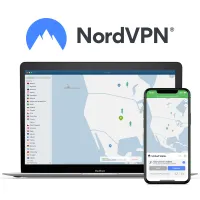The best China VPN: working services right now
Sidestep the Great Firewall with a quality China VPN

Here at Tom’s Guide our expert editors are committed to bringing you the best news, reviews and guides to help you stay informed and ahead of the curve!
You are now subscribed
Your newsletter sign-up was successful
Want to add more newsletters?

Daily (Mon-Sun)
Tom's Guide Daily
Sign up to get the latest updates on all of your favorite content! From cutting-edge tech news and the hottest streaming buzz to unbeatable deals on the best products and in-depth reviews, we’ve got you covered.

Weekly on Thursday
Tom's AI Guide
Be AI savvy with your weekly newsletter summing up all the biggest AI news you need to know. Plus, analysis from our AI editor and tips on how to use the latest AI tools!

Weekly on Friday
Tom's iGuide
Unlock the vast world of Apple news straight to your inbox. With coverage on everything from exciting product launches to essential software updates, this is your go-to source for the latest updates on all the best Apple content.

Weekly on Monday
Tom's Streaming Guide
Our weekly newsletter is expertly crafted to immerse you in the world of streaming. Stay updated on the latest releases and our top recommendations across your favorite streaming platforms.
Join the club
Get full access to premium articles, exclusive features and a growing list of member rewards.
The "Great Firewall" of China is powerful enough to block mainstream streaming sites and social media networks within the country, leading to both citizens and travellers to turn to the best China VPNs for access.
Many VPNs are ineffective in the face of the content blocks in China, meaning you'll need one of the best VPNs to access sites like YouTube, Facebook, Netflix or Wikipedia. This is because to get around the Great Firewall you need to use a VPN with obfuscated servers otherwise your VPN traffic may be detected and blocked, leaving you exposed to China's strict laws.
Here at Tom's Guide, we’ve tested dozens of VPNs to find the best VPNs for China to ensure they can give you access. We go more in-depth to all our picks in this guide, but below we've shared our top three – NordVPN, ExpressVPN and Astrill VPN.
Top 3 best China VPNs at a glance
1. NordVPN – the best China VPN overall
NordVPN is my top pick for China, offering easy-to-use apps, top-tier security, and some of the fastest speeds I’ve seen from a VPN. With over 8,000 servers in 126 countries, it easily bypasses the Great Firewall and gives you access to all those sites that have been blocked in China. Plus, it's excellent at unblocking streaming content, too. Prices start from $3.39 per month for a two-year subscription ($81.36 plus tax for 24 months coverage). Try it risk-free with a 30-day money-back guarantee.
2. ExpressVPN – the easiest China VPN to use
ExpressVPN is my go-to recommendation for those new to VPNs as it's incredibly simple to set up and use. Its strong presence in Asia, with unique locations like Laos, Macau, and multiple cities in Japan, makes it worth the cost of reliable access and bypassing restrictions. Prices start from $4.99 per month ($139 paid upfront, for 28 months' coverage) Test it out risk-free with a 30-day money-back guarantee.
3. Astrill VPN – very reliable, but very expensive
Astrill VPN is a popular choice among Chinese users, and it’s easy to see why – it has a great reputation for bypassing China's Great Firewall and unblocking foreign content. Its exclusive "Smart Mode" for stealthy VPN use and solid privacy features make it a reliable option for getting around restrictions. Prices start from $12.50 per month ($300 upfront for 2 years' coverage). Give it a try for free for 7 days to see if it’s the right fit for you.
This update has seen no major changes, so I've instead checked all the info on the page to ensure all the facts and figures are correct.
My list of the very best China VPNs of 2026
Why you can trust Tom's Guide
All the VPNs below have a track record of being effective at evading Chinese censorship. Out of the many VPNs I've reviewed, these are the providers that I'm trust the most to get access to content, but when it comes to China specifically, there are no guarantees. However, one way to improve your luck is to install your VPN on your devices before you leave home. Some VPN websites are blocked by Chinese authorities, so having them up and running before you leave is essential.
The best China VPN overall
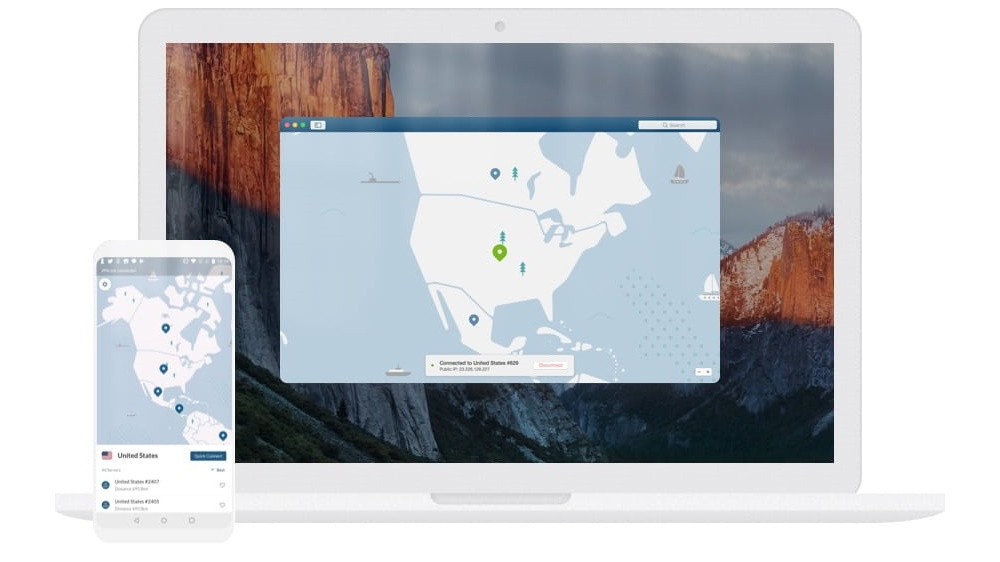
1. NordVPN
The best China VPN overall
Works in China: Yes | Servers: 8000 | Server locations: 164 locations in 126 countries | Closest server to China: Taiwan | Streaming sites unblocked: Netflix, Amazon, Disney, BBC iPlayer | Simultaneous connections: 10 | 24/7 support: Yes
✔️ You want easy access to VPN servers in China: Setting up NordVPN in China is just as easy as setting it up anywhere else, especially with its super friendly customer support.
✔️ You want a strong privacy suite: NordVPN doesn’t hold back in terms of privacy, with superior ad blocking, malware protection and a built-in antivirus at no extra cost.
✔️ You want to access Netflix everywhere: As a great VPN for Netflix, Nord unblocks all Netflix libraries, even more niche locations like Japan, in every country.
❌ You're a big torrenter: NordVPN is perfectly capable of protecting P2P traffic, but other VPNs do provide a better experience.
❌ You want a simple mobile interface: Nord’s map-style interface might be fun to look at, but it's certainly not the easiest to use, especially on Android and iOS devices.
NordVPN is my #1 VPN overall, and as a China VPN it's also unbeatable. With a new-generation VPN protocol like NordLynx, a guide on setting up your VPN manually – if it comes to that – and superior unblocking capabilities, NordVPN is a great choice.
In my expert NordVPN review, I explored the service’s powerful DNS leak protection, two kill switches, and incredible connection speeds via the secure NordLynx protocol. What's more, for those traveling to or living China, it's the very best option for evading surveillance and censorship.
NordVPN has upped its game since our last test rounds, upgrading its network to expand to 8,000 servers across 126 countries. This makes it easy to connect to locations outside Asia and enjoy a stutter-free streaming experience. From Netflix and BBC iPlayer to Prime Video, Disney Plus, Hulu, and YouTube, I was able to unblock each of these streaming services across various regions. In short, this makes NordVPN a very reliable option for anyone seeking to stream hassle-free, not only from China.
NordVPN is still among the fastest VPNs I've tested, with speeds hitting over 900 Mbps. In our recent tests, we've seen an increase in its OpenVPN speeds, too – up from 173 Mbps to 179 Mbps. While still behind Surfshark's 431 Mbps and ExpressVPN's 898 Mbps on the same protocol, I find it reassuring that NordVPN offers serious speed to back up its performance, especially for streaming and browsing.
But speed wasn’t the only area where NordVPN improved this time around. NordVPN's Meshnet feature has received upgrades, including faster file sharing and the ability to personalize device names for easier recognition. Acting like a virtual LAN network, Meshnet allows you to securely connect up to 60 devices directly, without using any special equipment or advanced networking knowledge.
However, for users looking to bypass China's restrictions, accessing NordVPN might require extra steps, as it doesn’t consistently bypass the Great Firewall without manual configuration or obfuscated server use, as without it, your VPN can be flagged and blocked in a split second.
There’s also a rich database of guides and tutorials available on the website that should be more than enough to troubleshoot most problems. For more help, the 24/7 live and email support should come through nicely.
NordVPN offers 10 simultaneous connections, which is decent when compared with Astrill VPN's 5. If you want a VPN that covers an unlimited number of devices on a single plan, though, it’s worth looking at Surfshark.
However, if you're after a VPN for China with tons of additional features for a reasonable price, NordVPN is your best bet – and as you’d expect, there's a 30-day guarantee in case you're not a fan.
Feature | Comments | Rating |
|---|---|---|
Design | A fun and interactive design but isn't the most clutter-free | ⭐⭐⭐⭐ |
Ease of use | The map-like interface is too much to wrap your head around, but apart from the mobile apps, it’s smooth sailing | ⭐⭐⭐⭐ |
Performance | The fastest VPN I've ever tested | ⭐⭐⭐⭐⭐ |
Unblocking | Perfect for Netflix everywhere but is equally capable for every other streaming platform, but not 100% in China | ⭐⭐⭐⭐ |
Security and privacy | On par with ExpressVPN with AES 256-bit encryption and a no-logs policy | ⭐⭐⭐⭐⭐ |
Customer support | 24/7 friendly support with help guides available | ⭐⭐⭐⭐⭐ |
Price | Excellent value for money but cheaper options available | ⭐⭐⭐⭐ |
The best China VPN for beginners

2. ExpressVPN
The premium provider is great in China
Works in China: Yes | Number of servers: 3,000 | Server locations: 160 locations in 105 countries | Streaming sites unblocked: Netflix, Amazon, Disney, BBC iPlayer, HBO Max, Hulu | Simultaneous connections: 8 | 24/7 support: Yes
✔️ You want a secure VPN: With regular audits and a proven no-logs policy, ExpressVPN is easily the best security money can buy and that’s why it’s our #1 pick overall.
✔️ You want a VPN you don’t have to monitor: ExpressVPN’s auto-connect feature means you just have to connect to the VPN once.
✔️ You want global access: ExpressVPN has servers in 160 locations in 105 countries, including Hong Kong, India, Pakistan and Taiwan, meaning there’s always a server nearby whether you’re in China or someplace else.
❌ You’re on a tight budget: ExpressVPN certainly isn't cheap, and it's almost three times as expensive as Surfshark, my best budget VPN.
❌ You want a built-in antivirus: ExpressVPN is highly secure and even offers a password manager for free but for a native antivirus solution, go for Nord.
ExpressVPN is easy-to-use for those trying out a VPN for the first time but comes with plenty for experts too. It’s fast, great at unblocking content, and there are few better options out there for security. For holidaymakers looking to access the web they know back home, it's a great choice.
In my hands-on ExpressVPN review, I found it to be one of the best providers I'd tested overall – and it's known to work in China too.
From its proprietary TrustedServer, which ensures that all servers run entirely on RAM (volatile memory), to military-grade AES 256-bit encryption, ExpressVPN remains one of the most secure VPNs I've ever used – and for good reason. In addition to automatically using obfuscation protocols, a kill switch, and a parallel VPN connection, Express also takes proactive measures and constant network updates to stay under the radar of China's firewall.
ExpressVPN has made huge strides in speed since our last tests, with speeds using its Lightway Turbo encryption protocol reaching over 1,600 Mbps on a 10 Gbps line during testing. However, this protocol is only available on Windows, and its speeds on its regular Lightway encryption protocol reached just 359 Mbps. Its OpenVPN speeds were the fastest we saw in testing, though, with peak speeds of 898 Mbps.
ExpressVPN stands out with its expansive server network, covering 160 locations globally, including 34 in Asia – beating NordVPN’s 32 by a hair’s breadth (again). This includes three servers in Singapore and several rare options you won’t find with many other providers, such as Laos, Macau, and Mongolia. On top of that, I found it offers multiple connection points in Japan, which means users in China get faster speeds and more reliable connections.
Overall, ExpressVPN is one of the most secure VPNs for users in China, with special add-ons alongside the essentials like AES 256-bit encryption, RAM-only servers, and an audited no-logs policy.
While it’s pricier than NordVPN or Surfshark, it’s almost half the price of Astrill, and is a top performer anywhere in the world. If you're looking for a super simple way to evade Chinese censorship, ExpressVPN is a great choice.
Feature | Comments | Rating |
|---|---|---|
Design | Simple and easily navigable interface with all options clearly visible | ⭐⭐⭐⭐⭐ |
Ease of use | Serves both beginners and tech-savvy people that want more customizability | ⭐⭐⭐⭐⭐ |
Performance | Fast enough for just about everything but Surfshark and NordVPN are faster | ⭐⭐⭐⭐ |
Unblocking | Unblocks just about every streaming platform there is, but has had some rare hiccups in China | ⭐⭐⭐⭐ |
Security and privacy | Highly secure protocols for complete peace of mind | ⭐⭐⭐⭐⭐ |
Customer support | 24/7 live chat and email support along with a rich knowledge center of blogs and guides | ⭐⭐⭐⭐⭐ |
Price | Worth every penny but more expensive than its competitors | ⭐⭐⭐ |
The most secure VPN for China
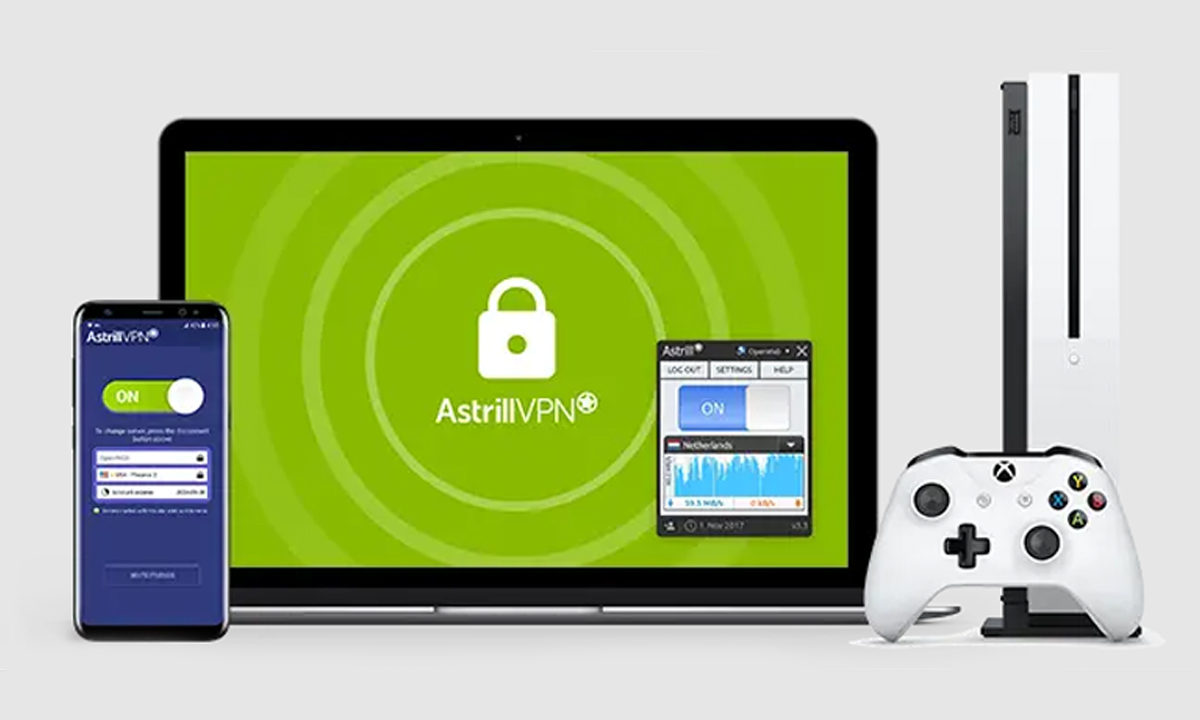
3. Astrill VPN
Expensive, but the most reliable China VPN
Works in China: Yes | Number of servers: 300 | Server locations: 142 locations in 56 countries | Streaming sites unblocked: US Netflix | Simultaneous connections: 5 | 24/7 support: Yes
✔️ You want a dedicated VPN for China: Astrill VPN has tons of features for privacy and anonymity in China that will keep you hidden from the various blocks put in place by the Chinese government.
✔️ You want better security: Astrill VPN comes with two kill switches and a custom Smart Mode/Stealth VPN to get online in China. There’s also port forwarding and multi-hop VPN.
✔️ You want a configurable VPN: Astrill’s desktop app is highly configurable, and technical users can spend a lot of time happily exploring the various options and settings.
❌ You want a budget VPN: Astrill is one of the most expensive VPNs I’ve ever reviewed – make sure you can afford it.
❌ You want to stream content: Astill doesn't unblock anything – simple as that. If this is a priority for you, go for NordVPN or ExpressVPN.
❌ You want a money-back guarantee: Astrill does not come with a money-back guarantee, and only offers a 7-day free trial.
Astrill VPN is an expensive yet popular China VPN known for upholding privacy in this restrictive country through its in-house obfuscation technology – and this is its main selling point. If you're looking to access global streaming sites you're out of luck, but for the most reliable protection in China, it's a very good choice.
Astrill VPN is one of the costliest providers I’ve ever reviewed, but when it comes to bypassing Chinese restrictions, it’s easily one of the most reliable and consistent VPNs around.
Astrill VPN has a proprietary protocol in Stealth VPN that specializes in evading the two most powerful censorship methods by The Great Firewall – deep packet inspection (DPI) and firewall blocks. Stealth VPN is seemingly more reliable at evading detection than the more common OpenVPN and WireGuard protocols.
Deep packet inspection involves scrutinizing data packets as and when they pass through a checkpoint on the network and is one of the most efficient ways of detecting VPN use, so Astrill’s ability to evade it is commendable.
Another feature that makes Astrill VPN a good fit for users in China is its Smart Mode. Instead of assigning you a foreign IP address which is very easy for governments to block, the Smart Mode assigns you a regional IP address. This helps you in two ways: you get the fastest speeds possible which wouldn’t be the case with a foreign IP, and two, you can easily stream local TV and news channels in China.
Now, you may want more security for yourself – this is where Astrill’s multi-hop feature comes into play. This routes your traffic through an additional VPN server so that anyone trying to trace your activities loses the trail – and while it’s probably overkill in most situations, it does offer extra peace of mind.
There are, however, quite a few downsides. First of all, Astrill VPN definitely won't be making our list of the best streaming VPNs anytime soon – in my hands-on Astrill VPN review, I could only get access to US Netflix, while services like BBC iPlayer, Amazon Prime, and Disney+ were totally blocked. Not great, considering rivals such as NordVPN and Surfshark can unblock just about everything under the sun. Both of those providers are also much cheaper than Astrill VPN.
Astrill also has relatively few servers – around 300 – which means at busy times you may find yourself suffering from slower connections.
However, for those who will be truly relying on their China VPN to blend in with the local IP addresses and evade all types of blocks used by the Chinese government, it's probably the most effective VPN for the job, and is widely recommended on forums and Reddit, which can only be a good thing. Just make sure you can afford it.
Feature | Comments | Rating |
|---|---|---|
Design | Simple and navigable design but visually it's quite dated | ⭐⭐⭐ |
Ease of use | Easy to use with enough customization options for all kinds of users | ⭐⭐⭐⭐⭐ |
Performance | Not the fastest but definitely stable, much like PIA or ExpressVPN | ⭐⭐⭐⭐ |
Unblocking | A mixed bag – great for unblocking the wider web in China, terrible for streaming global content | ⭐⭐⭐ |
Security and privacy | Stealth VPN comes with unique features to evade The Great Firewall | ⭐⭐⭐⭐⭐ |
Customer support | You get live support, tutorials, FAQs, and a contact form | ⭐⭐⭐⭐⭐ |
Price | It’s expensive, but few rivals perform as well as it does in this niche | ⭐⭐ |
The best cheap China VPN
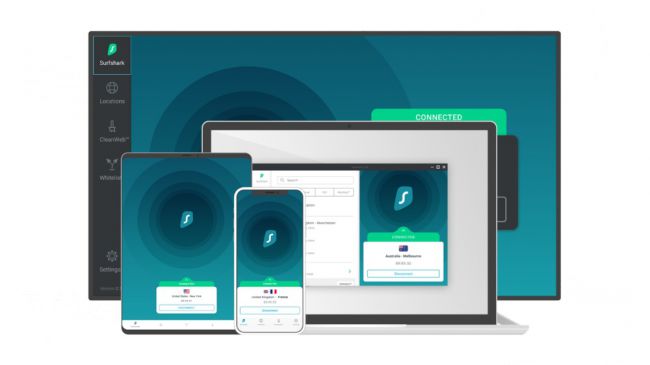
4. Surfshark
Swift as a shark – and as hidden as one, too
Works in China: Yes | Number of servers: 3,200 | Server locations: 141 locations in 100 countries | Streaming sites unblocked: Netflix, Amazon, Disney, BBC iPlayer, Hulu | Simultaneous connections: Unlimited | 24/7 support: Yes
✔️ You want unlimited connections: You can secure any number of devices you want, including your friends and family, with just one Surfshark account.
✔️ You want a fast VPN: With average speeds of around 850 Mbps, Surfshark shines through as one of the fastest providers in my recent round of testing.
✔️ You want the best budget VPN: Surfshark is hands down the best bargain pick right now. Enjoy unlimited connections, servers in 100+ countries, and the fastest speeds in the industry at just a fraction of the price of other VPNs.
❌ You want foolproof security: Although decent, there are potential issues with Surfshark’s kill switch, including leaking under extreme pressure, so if you’re a privacy purist, go for NordVPN or ExpressVPN.
❌ You want a VPN for torrenting: While Surfshark supports torrenting, it’s not as good as the likes of ExpressVPN or PIA.
Surfshark is your best option for a China VPN if you’re on a budget. It’s incredibly fast, allows unlimited simultaneous connections, and unblocks content with ease. The kill switch is a case of hit-and-miss but still decent. You can get started for less than $2 per month, along with a 30-day money-back guarantee.
Netherlands-based Surfshark is the best cheap VPN on the market, and it’s also a good choice for those traveling to China. With charmingly simple interfaces, its desktop and mobile apps ranked highly in my expert Surfshark review, are incredibly easy to use and deliver excellent performance.
Besides being dirt cheap, Surfshark also has decent speeds, reaching around 850 Mbps during testing. Its OpenVPN speeds are decent, too, at 431 Mbps, making it second only to ExpressVPN when using this encryption protocol.
That doesn't mean that it lacks power, though. While not quite as configurable as ExpressVPN, Surfshark offers great security through strong encryption, a number of different VPN protocols, a useful kill switch, and split tunneling. There's also double-hop, and the NoBorders feature combined with Camouflage Mode is what allows it to unblock content within China.
The Camouflage Mode makes your VPN traffic look like a regular internet connection by removing any VPN traces. This makes bypassing content restrictions easier, as the Chinese government won’t be able to monitor your activities.
The unique NoBorders mode is specially designed to increase maneuverability in highly restricted areas like China, and is analogous to what other providers call 'obfuscation'. If and when the Surfshark app on your device senses any kind of restrictions on your current connection, it’ll switch the NoBorders mode on – it’ll give you a list of servers capable of bypassing those restrictions, ensuring you always enjoy a smooth-sailing VPN connection.
I tested the kill switch on all supported devices, and it performed just as I’d expected on most of them. However, when pushed to the limit, the Windows kill switch did leak – but this was in a situation that’s very unlikely to happen in the real world.
Surfshark is also a very fast bit of kit, and with its unlimited simultaneous connections policy, you can cover absolutely every device you own – whether, for some inexplicable reason, you've taken a dozen phones on holiday to China, or you want to cover every device in your household behind the Great Firewall. Plenty for your money, then.
As one of the most budget-friendly China VPNs, Surfshark offers tremendous value for the price, and if you’re willing to overlook the absence of a few advanced features found in Nord or Express, there’s no beating the speeds, unblocking, and super-friendly customer support of Surfshark. There’s also a month-long money-back guarantee, so you can try it before you commit to it.
Feature | Comments | Rating |
|---|---|---|
Design | Fun and intuitive, with all the options well-labeled and easy to navigate | ⭐⭐⭐⭐⭐ |
Ease of use | One of the best VPNs for beginners | ⭐⭐⭐⭐⭐ |
Performance | One of the very fastest providers I've tried | ⭐⭐⭐⭐⭐ |
Unblocking | Doesn’t get past everything but still better than most | ⭐⭐⭐⭐ |
Security and privacy | The kill switch is questionable but kudos to a built-in ad blocker and breach-monitoring feature | ⭐⭐⭐⭐ |
Customer support | Plenty of help articles, expert support available over chat and email. | ⭐⭐⭐⭐ |
Price | The best budget VPN on the market | ⭐⭐⭐⭐⭐ |
The best China VPN for experts
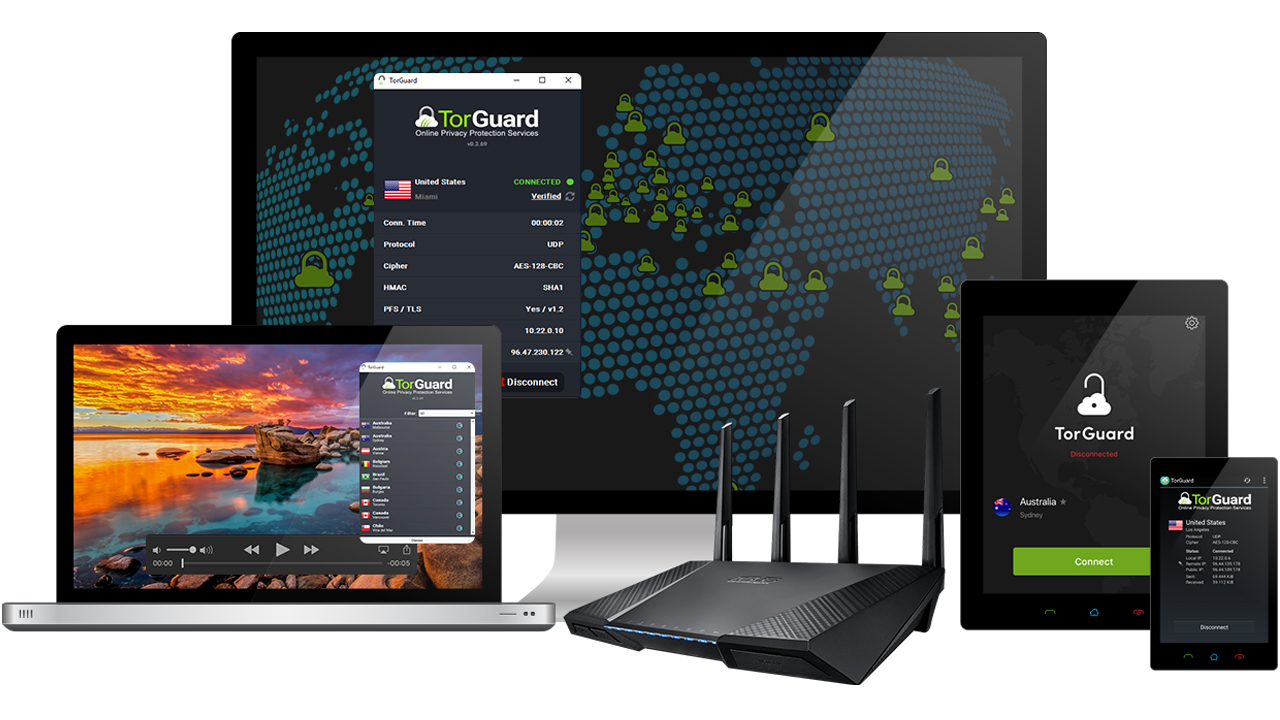
5. TorGuard
Smaller provider's stealth VPN tech is effective in China
Works in China: Yes | Number of servers: 3,000+ | Server locations: 50 countries | Streaming sites unblocked: BBC iPlayer, ITV Player, YouTube | Simultaneous connections: 12 | 24/7 support: Yes
✔️ You want dedicated servers for China: TorGuard has “Asia Optimized” servers for those in China. Superior Stealth VPN technology keeps your VPN traffic hidden from governments and hackers.
✔️ You need a highly configurable VPN: TorGuard has lots of customizable options and you can set up your VPN connection exactly the way you want it to be.
❌ You want a VPN that’s easy to use: Plenty of configuration is good for some, but may be too much for newbies.
❌ You want a VPN for streaming: TorGuard is very poor when it comes to getting past geo-blocking on streaming platforms.
❌ You want a cheap VPN: TorGuard is expensive when you consider the features it offers, and I’d recommend most go for Surfshark or NordVPN.
TorGuard does a fantastic job when it comes to keeping your VPN connection untraceable in China, but it suffers when it comes to streaming, and isn’t ideal for beginners, either. It’s available in only 50 countries, and its premium pricing makes it a difficult choice compared to options like Surfshark and NordVPN.
Much like Astrill, you won’t often see TorGuard on my other guides, but it’s an excellent option when it comes to acting as a China VPN. It uses similar Stealth VPN technology as Astrill to disguise your VPN traffic as regular web traffic and give you unrestricted internet access when in China.
You can choose one of its many Stealth VPN servers from the app. I recommend “Asia Optimized” for the best experience, as these servers can reach all popular ISPs, such as ChinaTelecom, ChinaUnicom, and Taiwan’s HiNet. It appears that the provider also frequently updates its apps to maintain China VPN support – and this can only be a good thing.
While the over 3,000 servers are more than decent and almost at par with ExpressVPN and Surfshark, TorGuard is present in an underwhelming 50 or so countries, making it the least expansive VPN on the list.
For day-to-day usage, TorGuard's pretty good too. In my TorGuard review, it actually matched Surfshark in terms of connection speeds, at 950 Mbps when using WireGuard.
However, if you're looking for a VPN to unblock streaming content with, TorGuard is not the right choice – I couldn't access any premium streaming site barring BBC iPlayer, when connected.
That said, TorGuard has a paid add-on that works better for streaming but for its standard price, I expected better – ExpressVPN and NordVPN remain my top choices for streaming.
It’s worth noting that to reliably evade the Firewall, you’ll need to configure TorGuard to suit your needs.
While this sort of setup is a bonus for techies, those new to VPN may well have issues. The interface is quite chaotic and clunky, too – certainly not convenient for beginners.
Overall though, TorGuard is a very usable VPN that's dedicated to unblocking the web in China. Its 7-day money-back guarantee isn't as generous as others, but at least you'll still be able to test it out before you commit.
Feature | Comments | Rating |
|---|---|---|
Design | Clunky and chaotic, but it gets the job done | ⭐⭐⭐ |
Ease of use | Ideal for technical experts with lots of customization options but poor for beginners | ⭐⭐⭐ |
Performance | Right beside Surfshark as the fastest VPN in my testing | ⭐⭐⭐⭐⭐ |
Unblocking | Struggles to unblock any popular streaming site, let alone the more elusive ones | ⭐⭐ |
Security and privacy | Decent security features, such as the Stealth VPN | ⭐⭐⭐⭐ |
Customer support | Useful FAQs, dedicated knowledge base, live chat and email support available | ⭐⭐⭐⭐⭐ |
Price | One of the costlier VPNs | ⭐⭐⭐ |
How to choose a China VPN
Since many VPNs won't work in China, simply being able to get online as a China VPN is a useful first step.
The Great Firewall of China is constantly evolving—and that means it just gets better and better at spotting, and banning, VPNs. In addition, China's government imposes strict measures to keep folks away from certain sites, services, and platforms.
I'd recommend opting for a VPN with obfuscation (cloaking) technology that'll help you evade this censorship. Obfuscation disguises the fact that you're using a VPN at all so, to any snoopers, your encrypted connection will look like normal traffic.
DNS leak protection and a reliable kill switch are must-haves, too. If you're relying on your VPN to keep your digital footprint confidential, you won't want to be unknowingly leaking personal information. DNS leak protection makes sure that you're not leaving an identifiable trail across the web—and a kill switch will leap into action and cut your internet connection if the VPN drops, preventing your original IP address from leaking.
Then, I'd highly recommend seeking a service with 24/7 live-chat support. If you run into any issues with your China VPN, you'll be able to contact your provider and they should be able to remedy your problem. A money-back guarantee is also well worth finding, since no VPN can guarantee a 100% success rate in the country. If it fails, at least you'll get your money back.
When reviewing ExpressVPN, the provider ticked all these boxes, which is why it features here. For many, though, the best China VPN will be Astrill VPN. While its apps lacks the polish of bigger names, it's highly regarded and widely recommended as one of the best for getting online in China.
NB: I highly recommend signing up to and installing VPN before you step on the plane to China. Once you're there, you may find your provider's website is blocked and that the app has disappeared from your app store.
What servers should I use in China?
When it comes to picking a server, you'll want to choose one that's located as close to your real-life position as possible. Doing so means that your data doesn't have as far to travel, and ensures that you're getting the best speeds possible and a reliable connection.
If you're in China, however, this can be a tough task. The country is massive and, as a result, sometimes your closest server will be across the border.
For example, if you're looking for a Hong Kong VPN, ExpressVPN has local servers that'll suit you down to the ground. For anyone miles away in Xinjiang, however, you'll be better off joining a server in India, Pakistan, or Mongolia, as they'll be nearer, more stable, and offer better speeds.
How I test the best VPN services
Given the range of options, comparing VPN services can be challenging, especially for non-tech users. Choosing the right VPN is important whether you want to hide your online activity from your ISP, bypass firewalls and avoid censorship (like the one in China), or simply stream your favorite sports and TV shows.
For this reason, we at Tom's Guide have developed a comprehensive, hands-on approach, thoroughly assessing every provider listed before making a suggestion. Every six months, we subscribe to a service, download its app on multiple devices, and check all the offered characteristics, including speed and number of servers, privacy, as well as the country of registration.
The app for Windows undergoes the harshest of tests – we check the kill switch reliability, whether the software is capable of leak protection, and measure connectivity speeds. We also evaluate the Mac VPN, iPhone VPN, and Android VPN so that all the settings perform as advertised.
Should any of these factors raise suspicion, we dig deeper – checking the app’s source code or inspecting its RAM. We also look into the design and the general user-friendliness, though these parameters are more of a qualitative nature.
Then comes testing each VPN with major streaming platforms to make sure users have access across different regions. Given Netflix’s popularity and strict VPN policies, we conduct monthly tests to confirm our recommendations remain up-to-date and aligned with the real-world needs of our readers.
To find out more, I've outlined exactly how we test VPNs.
Best China VPN FAQ
Do China VPNs still work?
The short answer is yes – if you pick the right provider. In recent months the Chinese government appears to have had a serious crackdown on VPNs, and some old favorites like ExpressVPN and NordVPN have begun to have problems.
We've kept these providers on this list for now, and we're monitoring performance. However, we'd recommend our top provider Astrill VPN if you want to be sure.
Why do I need a China VPN?
Censorship, blocked content, and harsh restrictions are the scourge of the digital world—and in China, they're commonplace practices. The Chinese government has infamously restricted access to a tonne of popular sites, ranging from social media services, news outlets, and even communication platforms. As a result, it's much harder to keep in touch with loved ones living overseas and stay up to date with the latest news stories.
China's government also employs invasive surveillance tactics to spot VPN traffic—like deep packet inspection (DPI).
Luckily, a VPN can put a stop to this snooping and beat censorship, helping you access a web free from restrictions. Connecting to a VPN server encrypts your traffic and gives you a new, temporary, IP address, so you'll look like you're living somewhere else entirely. As a result, governments, ISPs, and hackers won't be able to see what you're getting up to online.
Can I get a free China VPN?
There are free VPN services on the market – like Hotspot Shield – but while they are great for infrequent, casual use, all of them have some restrictions.
Nearly all have a daily or monthly data limit, which will cut your connection when you've run out. Some throttle speeds, while others inject adverts and perhaps even sell you data – contradicting the main reason why people get VPNs in the first place.
If you're going to be relying on your VPN for more than a few minutes a day, we'd strongly recommend you go for a paid version. When you can get unlimited service from a provider like Surfshark for less than $2 a month, there's little reason to hold yourself back with a free version.
Are VPNs legal in China?
China has banned VPNs, having already removed all VPN apps from China's Apple Store – yet it still needs them. For businesses to share information securely outside of China, VPNs are commonly used, and since China doesn't want to stunt international business and growth, making VPNs entirely illegal wouldn't make sense.
Instead, the country has said telecom and internet companies must get government approval before using VPNs for cross-border approval.
A private VPN user was fined 1,000 yuan ($145) in January 2019. While this certainly sets an example, it can't realistically work nationwide, so use a China VPN at your own discretion as there's a minimal but real risk involved.
What popular sites are banned in China?
If you're not from China, there are more than a few sites that you probably use daily that are blocked.
The list of banned sites is incredibly long, and includes: Google, YouTube, Twitter, Reddit, Facebook, Instagram, Gmail, Twitch, BBC, NY Times, Dropbox, Slack, Etsy, and Steam. Plus, just about any adult site you can think of is blocked, too.
We test and review VPN services in the context of legal recreational uses. For example: 1. Accessing a service from another country (subject to the terms and conditions of that service). 2. Protecting your online security and strengthening your online privacy when abroad. We do not support or condone the illegal or malicious use of VPN services. Consuming pirated content that is paid-for is neither endorsed nor approved by Future Publishing.
Get instant access to breaking news, the hottest reviews, great deals and helpful tips.

Mo has been rigorously testing, reviewing, and analyzing VPN services at Tom’s Guide for more than five years. He heads up the three-person Tom's Guide VPN team, and is passionate about accessibility: he believes that online privacy should be an option that’s available to everyone. NordVPN and ExpressVPN are the products he uses most on a daily basis, but he experiments weekly with all the top services, evaluating their privacy features, connection speeds across various protocols, and server reliability – among other things – so that he can make confident VPN recommendations that are backed by data. To see his latest advice, head over to Tom’s Guide’s best VPN and best free VPN guides.
- Olivia PowellTech Software Commissioning Editor
 Club Benefits
Club Benefits










